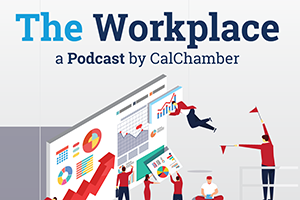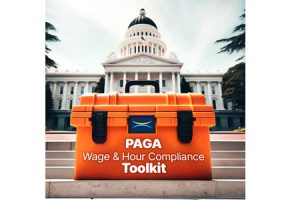Private Attorneys General Act
Business Community Secures Historic PAGA Reform
California’s labor and employment laws are complex and burdensome in comparison to the rest of the nation. There is no better example of California’s distinction in this area than the Private Attorneys General Act (PAGA). PAGA allows an aggrieved employee to file a representative action on behalf of themselves, all other aggrieved employees, and the state of California for alleged Labor Code violations.
The Need for Reform
During its 20-year history, it became clear that PAGA was failing both employees and employers. PAGA lawsuits have increased over 1,000% since the law took effect in 2004. By 2014 and every year since, the Labor and Workforce Development Agency (LWDA) has received approximately 4,000 PAGA notices. See 2019 Budget Change Proposal, PAGA Unit Staffing Alignment, 7350-110-BCP-2019-MR (hereinafter PAGA BCP). The popularity of these lawsuits is due to the significant monetary awards that can be levied against an employer. Under the original law, the default penalty for a violation of the Labor Code was $100 per employee per pay period for an initial violation and $200 per employee per pay period for each subsequent violation. The threatened penalties are therefore often very high, especially in relationship to the actual alleged harm, if there was any harm at all.
PAGA also failed to protect employees. The average payment that a worker receives from a PAGA case filed in court is $1,264, compared to $3,956 for cases adjudicated by the state’s enforcement agency. Even though workers are receiving higher awards in state-adjudicated cases, employers are paying out less per award. This is likely because of the high attorney’s fees in PAGA cases filed in court. Attorneys usually demand a minimum of 33% of the workers’ total recovery, or $372,000 on average, no matter how much legal work was actually performed. In addition to receiving lower average recoveries in PAGA cases, workers also wait almost twice as long for their owed wages. The average wait time for a PAGA court case is 23 months compared to 12 months for the state-decided cases.
Even the LWDA recognized PAGA abuse. In its 2019 budget proposal for PAGA, the LWDA stated “the substantial majority of proposed private court settlements in PAGA cases reviewed by the Unit fell short of protecting the interests of the state workers.” The analysis continues, “Seventy-five percent of the 1,546 settlement agreements reviewed by the PAGA Unit in fiscal years 2016/17 and 2017/18 received a grade of fail or marginal pass, reflecting the failure of many private plaintiffs’ attorneys to fully protect the interests of the aggrieved employees and the state.” (emphasis added).
Despite this analysis, the California Legislature had consistently rejected PAGA reform bills except for two unionized industry carveouts. Notably, in support of one of those carveouts, the author acknowledged that PAGA put: “enormous pressure on employers to settle claims regardless of the validity of those claims.” See Assembly Appropriations Analysis of SB 646 (Hertzberg; D-Van Nuys) (2021).
The FixPAGA Coalition
Because the Legislature consistently declined to reform the law despite acknowledgement from the LWDA that it was broken, The California Chamber of Commerce, New Car Dealers Association, California Restaurant Association, California Grocers Association, California Retailers Association, California Manufacturers & Technology Association, and Western Growers Association qualified a ballot initiative titled “The California Fair Pay and Employer Accountability Act” for the 2024 ballot. It would have replaced PAGA with alternative enforcement mechanisms in the hands of the Labor Commissioner.
As part of a parallel effort, those organizations also started the FixPAGA coalition, a diverse group of business groups, nonprofits, and public entities that raised awareness within the California Legislature about the need for PAGA reform. Local business owners and nonprofit leaders met with their representatives and testified in legislative committees about the shakedown lawsuits they were experiencing that diverted monies away from workers and patients and into attorneys’ pockets. As a result of this effort, Governor Gavin Newsom convened business and labor together to draft reforms that took effect on June 19, 2024. The initiative was subsequently removed from the ballot.
Overview of Reforms
On July 1, 2024, the Governor signed SB 92 (Umberg; D-Santa Ana) and AB 2288 (Kalra; D-San Jose). Those bills together formed the PAGA reform and are retroactive to any case where a PAGA notice was filed on or after June 19, 2024. That effective date was significant because there was a sharp increase in PAGA notice filings immediately following the announcement of reform — nearly three times as many PAGA notices were filed within the first 10 days than during the same time period in 2023.
For the business community, the goal of the reforms was to curtail the abuse of PAGA litigation by limiting exposure and resolving cases more quickly. Those reforms include:
• Raises the bar for standing: The PAGA reform requires that the plaintiff experienced all the alleged violations, superseding the Huff v. Securitas, 23 Cal. App. 5th 745 (2018) decision. The only exception is for narrow circumstances where the plaintiff is represented by a qualifying nonprofit organization. The plaintiff must also have experienced the alleged violations within the one-year statutory period, superseding Johnson v. Maxim Healthcare Servs., Inc., 66 Cal. App. 5th 924 (2021).
• Caps maximum penalty: The PAGA reform imposes caps on the maximum penalty that can be awarded where the employer can either show that it took reasonable steps to comply with California law or where a specific type of claim is alleged. The law specifies that this is a maximum and that the court still retains discretion to award a lesser amount. Further, the PAGA reform codifies that the $200 penalty applies only where the employer received a finding or determination that their conduct was illegal from a court or agency or their conduct was fraudulent, malicious, or oppressive.
• Provides procedural tool for manageability: The PAGA reform provides employers with a procedural tool to limit the scope of the PAGA claim so that it can be tried effectively.
• Expands right to cure: The PAGA reform expands the list of alleged violations that can be cured, provides additional means of curing wage statement violations, and provides both a more robust agency cure process for smaller employers and an early evaluation conference option once at the litigation stage.
• Changes penalty allocation: The PAGA reform allocates more penalties to employees as opposed to the state.
COURT CASES
Around the time of the PAGA reform, employers received more good news in the form of court cases:
• Naranjo v. Spectrum Security Services, Inc., 15 Cal. 5th 1056 (2024): The California Supreme Court held that an employer’s objectively good faith, reasonable belief for its actions precluded the award of statutory penalties. While the case did not deal explicitly with PAGA penalties, the court made clear that the goal of “civil penalties” (for example, PAGA) is not to punish actors “who proceed on a reasonable, good faith belief that they have conformed their conduct to the law’s requirements.”
• Turrieta v. Lyft, Inc., 16 Cal. 5th 664 (2024): The California Supreme Court held that one plaintiff does not have the right to intervene in another’s PAGA matter and object to the settlement.
• Stone v. Alameda Health System, 16 Cal. 5th 1040 (2024): The California Supreme Court held that public employers cannot be sued under PAGA.
CalChamber Position
The CalChamber is proud to have played a key part in the PAGA reform and will continue to monitor the law to ensure it is operating as intended. The PAGA reform demonstrated that a unified business effort on important issues can bring leaders to the table to tackle necessary reforms.
Updated January 2024

Agriculture and Resources
California Environmental Quality Act (CEQA)
Climate Change
Education
Energy
Environmental Regulation
Health Care
Housing and Land Use
Immigration Reform
International Trade
Labor and Employment
Legal Reform
Managing Employees
Privacy
Product Regulation
Taxation/Budget
Tourism
Transportation
Unemployment Insurance/Insurance
Water
Workers’ Compensation
Workplace Safety
Related News
Privacy Bills
Coalitions
Committees
Staff Contact
 Ashley Hoffman
Ashley Hoffman
Senior Policy Advocate
Labor and Employment, Workers’ Compensation







